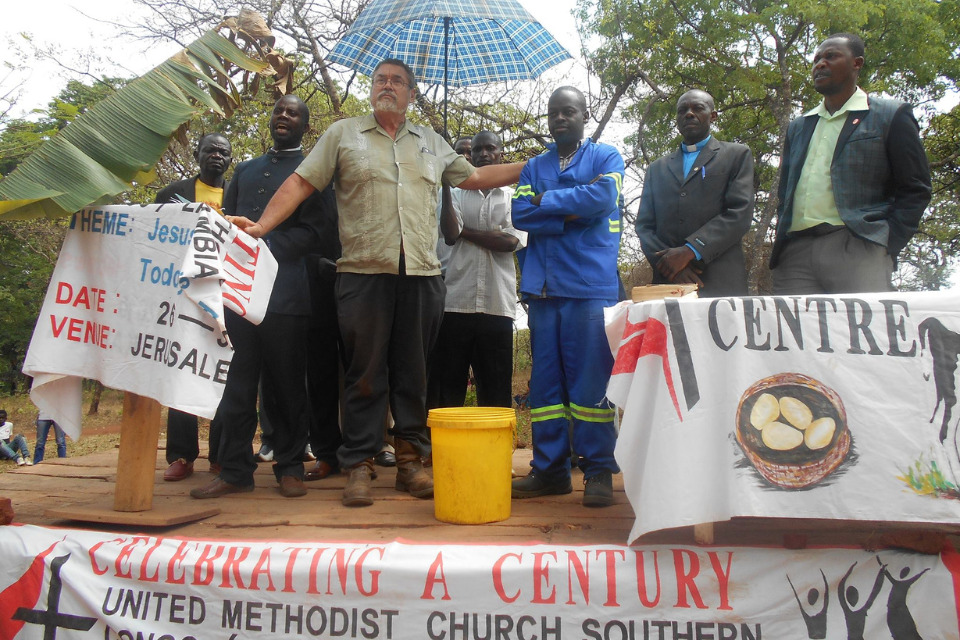STEP 5: United Methodist missionary Temba Nkomozepi recently sat down with Rev. Alex Plum to talk about the work at Mujila Falls in Zambia and how he views mission as bidirectional.
KAY DEMOSS
Michigan Conference Communications
“Dignity.” That’s the word Temba Nkomozepi stressed when he introduced himself as a new United Methodist missionary five years ago. When assigned to the agricultural center at Mujila Falls in northwest Zambia, Temba shared some of his own story on Facebook.
He posted, “When I was training, we were given a list of words for our mission statement . . . what stood out to me the most was ‘dignity.’” He continued. “I am reminded of a Sunday school class I attended in Atlanta. I was asked what I thought the people in the area I was going to serve needed. My answer was simple. ‘Opportunity.’” Dr. Nkomozepi’s post concluded, “The General Board of Global Ministries has given me the opportunity to be a missionary because of the opportunities that had been afforded to me to get my education and experience. . . . It is very pertinent to pursue long-term empowerment in Africa to increase resilience and reduce vulnerability to shock . . . This is the opportunity I want to give men, women, youth, and children at Mujila Falls Agriculture Centre, to help people help themselves with dignity.”
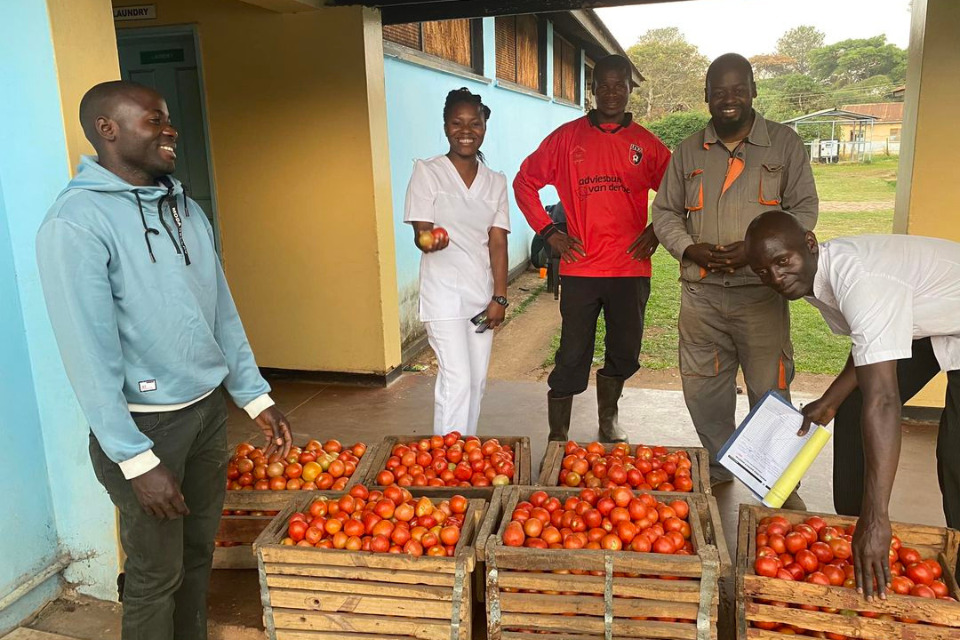
Temba is among the mission personnel listed in Step 5 of the EngageMI program of the Michigan Conference. Mujila Falls Agriculture Centre is an international partner found in Step 3. Congregations across Michigan have long been aware of this program to train farmers and feed hungry families. The project launched in 1995 at Musokatanda in DR Congo. The founding missionaries were Paul and Roxanne Webster. Civil conflict caused the relocation of the project to Zambia. Chief Kanyama of the Lunda people provided the land for the food security ministry that was dedicated in 2000. Temba stepped into leadership when Paul Webster retired in 2018.
“If one person remains in The United Methodist Church, that person will remain in mission.” ~ Temba Nkomozepi
Temba was in Michigan during September and October, meeting with ministry partners around the state. He visited over 27 churches and met hundreds of people. He was a guest presenter at the Starting and Sustaining event hosted by the Conference Board of Global Ministries (CBGM) on September 29-30, 2023, in Mt. Pleasant.
Rev. Alex Plum, chairperson of the CBGM, joined Temba on stage at the Wesley Foundation of Central Michigan University (CMU), to learn more about mission “as a two-way street.” Their conversation is shared here.
Alex: Tell us about the chief being approached about donating the land to the project. Has it been hard for the mission to continue to honor his original request?
Temba: I think the chief was very smart. His people were suffering from malnutrition. He knew the impact The United Methodist Church has made in the area, particularly in Congo. He trusted that the connected church would bring change to his area, too. It is not difficult to continue to teach people about farming that will supply protein-rich food. It is in the DNA of the project in Mujila Falls. Our purpose has three prongs. First, the farm has to continue running as it is the basis of all activities we do. We have to manage the farm the right way, with integrity and accountability. Second is the classes we teach. They can only be demonstrated if the farm is running well. This training empowers people. That is development. Third, we want to make a contribution to church growth. We have made it our objective to make disciples, and that is just as important as running the farm. We want to grow the family of the Kingdom of God.
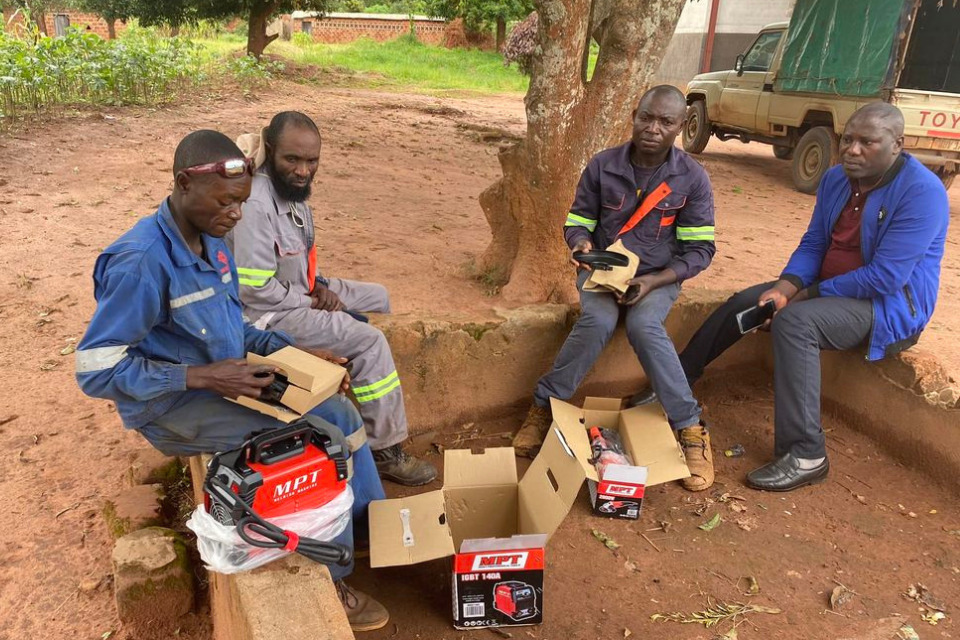
Alex: How did you determine what would be given away for free?
Temba: When you have a non-profit, there are difficult metrics to deal with. After the founder left in 2018, many churches didn’t realize the project was ongoing. Then COVID hit. We tightened our belt. We saw that egg production is a top-heavy project. You must give chickens a lot of attention. So, we had to sell them to break even. But milk is different. We used to sell the milk. Then we made an option that we could write a prescription for people to get the milk, like mothers who cannot breastfeed anymore. When you buy dairy cattle, the main cost is purchasing the animal. Once it’s living, there isn’t much except vaccines or a few regulatory costs. It is a blessing we were given grass. The cows eat it and produce milk. We are now giving very nutritious grass to people who benefit. We now keep bills tight but put in place an infrastructure to help the project make the impact we want it to do. We rebuilt the day care center for 50 children. That is the first block of a primary school and the first block of a trade school. We are seeing increased impact.
“Temba has shown us that mission is not a one-way street. Mission is a two-way street. It is bidirectional.” ~ Alex Plum
Alex: You have described an ecology of God. Cattle graze. God provides grass. It is only right that the milk is given away. Is this how you make Jesus more present in the community?
Temba: There are many examples of Jesus talking about agriculture. It is easier to teach things that people see and picture in their heads what is going on. Our message is that agriculture is a way of life, and the Bible demonstrates that. The picture of Jesus seemed foreign in the beginning. But when you teach people to do the things in the Bible story, they look at them differently. Many people have been in a low place, but their lives have changed as part of our project.
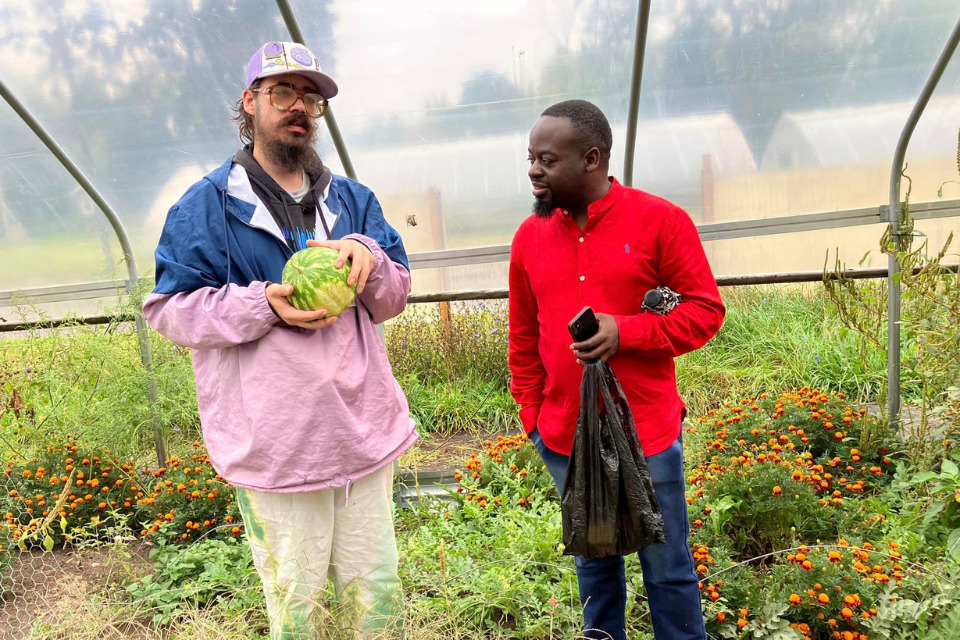
Alex: How did you get into this project?
Temba: The degrees [from Africa University and Kyungpook National University] didn’t have anything to do with becoming a missionary. I’ve always been a person who can’t preach or sing in the choir. I’ll move the chairs in church or something like that. After I went to school in South Korea, I was part of an alumni association working with disabled children. We had bad inflation in Zimbabwe at that time. We were doing a greenhouse project with the kids. I posted a picture on Facebook. Someone said, “I will support your application to this place.”
Audience: Tell us about the locals who come to learn better practices at Mujila Falls.
Temba: We don’t have NewsBytes, but people come from ten miles away. A group organizes themselves and says we want to do something with free-range chickens or something. We built a dormitory for 20 people to stay. The Peace Corps has been coming for six years to do animal husbandry training. Some attend from 400 miles away. We are not big, but we have a little bit of everything, which is good for training purposes.
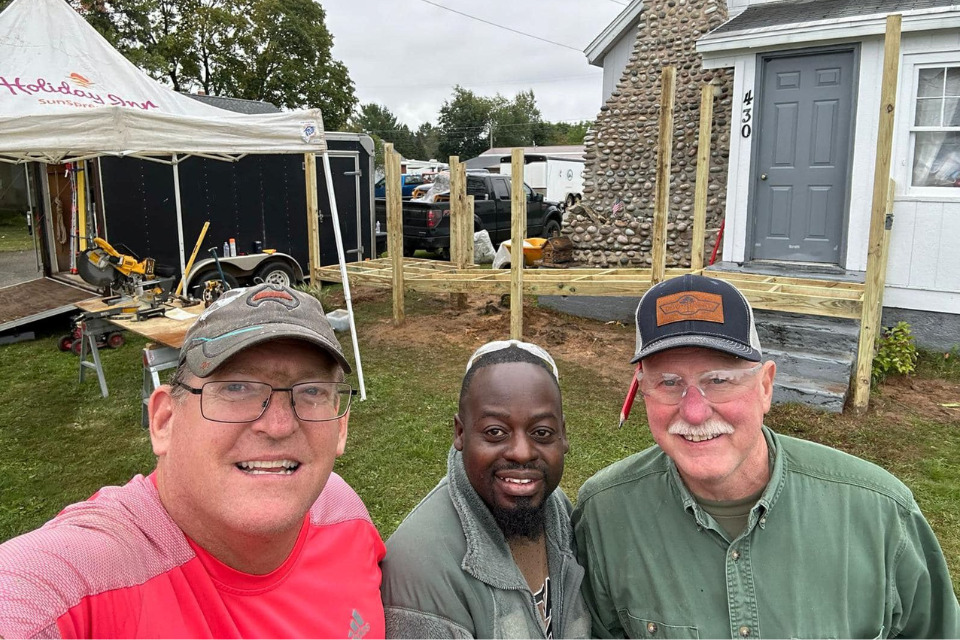
Audience: Does Mujila Falls have the possibility of new streams of income?
Temba: We are praying for The United Methodist Church to stay strong. God works in mysterious ways. Maybe I am being naïve. I don’t see a situation where we will not have people who want to support this mission. When our founder visited us, he was surprised. A 15-member church is helping us build a vocational college. Sometimes, when you see someone who needs something, if you don’t do it, God will raise someone to do that thing. God is going to raise people who will continue to support us. Mission is very difficult without support.
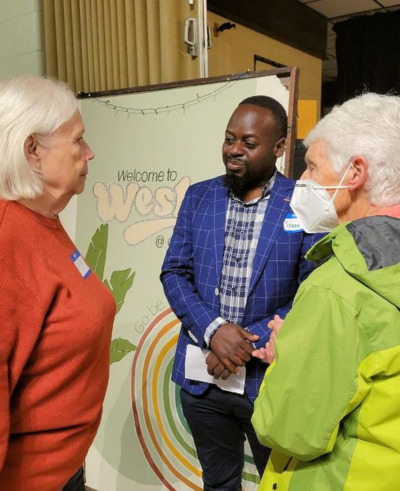
When I went to the Upper Peninsula with Midland UMC, [we worked at God’s Country Cooperative Parish]. There was an older lady who couldn’t get out of her house. The missionary, Randy Hildebrant, and the team designed a ramp for that lady to go out of her house. I talked to her daughter, who didn’t understand why we were spending time building a ramp because maybe her mother won’t live for three months. People were there to spend their resources to contribute their effort with a trailer full of tools. If one person remains in The United Methodist Church, that person will remain in mission.
Audience: Your program trains for local leadership. When you have to leave, can local leadership take over to sustain the local economy?
Temba: God is raising up people who are more capable than you can imagine. People in Zambia are doing everything I do right now [while I am in the U.S.]. A man who came to mold bricks at Mujila Falls today is going to be a teacher teaching others how to do it. A lot of people are being raised. When there is no missionary there, God’s people will be there.
Audience: What do you love about the work you do?
Temba: I like to do more with the least effort. What I like about our work is that we are doing a lot, utilizing small things around us.
Alex: Temba has shown us that mission is not a one-way street. Mission is a two-way street. It is bidirectional. He has brought an important word about God’s ecology and God’s economy.
Note: Temba Nkomopezi is among the mission personnel listed in Step 5 of the EngageMI program of the Michigan Conference (Advance #3022400). Mujila Falls Agriculture Centre is an EngageMI international partner found in Step 3, Advance #15016A.

